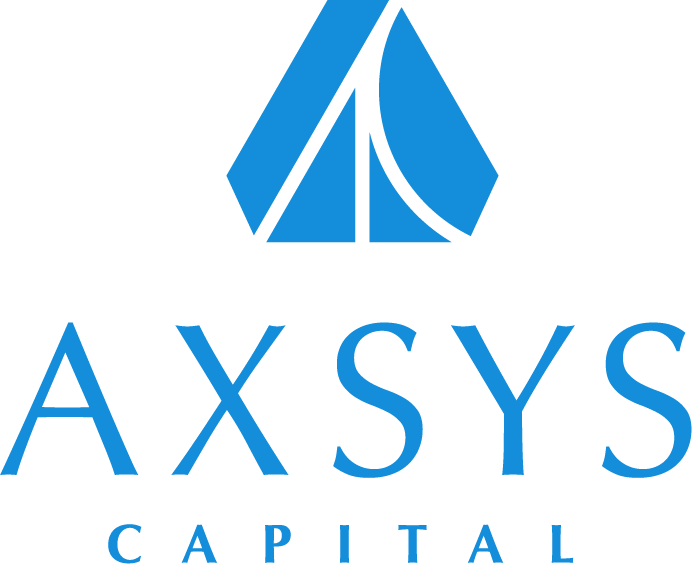
By: David Meggs, Co-Founder & CEO, AXSYS Capital
In the ever-changing landscape of real estate investing, savvy investors are constantly on the lookout for recession-resistant opportunities. One such resilient sector that has proven to withstand economic downturns is medical office buildings (MOBs).
As the demand for healthcare and outpatient services continues to rise, investing in these stable properties offers a recession-proof approach to fortifying your real estate portfolio—and is a great way to diversify your holdings outside of the stock market. In this blog post, we’ll delve into the reasons behind the stability of MOB investments during economic downturns, and how investing in this niche offers several advantages to those who purchase MOB properties.
Growing Healthcare Demand:
Medical services are a fundamental necessity, irrespective of economic conditions. During recessions, people may cut back on discretionary spending, but healthcare remains a non-negotiable expense. The US’ aging population will only continue to drive the demand for medical services, ensuring a steady stream of tenants for medical office and ‘medtail’ buildings.
According to the Federal Agency CMS (Centers for Medicare & Medicaid Services), physician and clinical services spending is projected to grow at an average rate of 5.4% per year and reach $1.2 trillion by 2027. Statista Market Insights projects the healthcare market expected to grow at stellar growth rate of 10.4% (CAGR 2023- 2027).
Furthermore, the 2020 census revealed that between 2022 and 2030, more than 20% (or the equivalent of 10,000 Baby Boomers per day) of the total U.S. population will reach the age of 65.
Stable Cash Flow:
Medical practitioners often sign long-term leases (typically 10 years or more), providing stability and predictable cash flow for MOB investors. These leases typically have built-in rent escalations, which help protect against inflation and ensures that the income generated from the investment continues to grow over time.
Additionally, properties that are triple net leased (NNN), where the tenant agrees to pay the property taxes, building insurance and maintenance in addition to rent and utilities, have become popular investment vehicles for retail private investors over the past decade because they offer low-risk, steady income with the headaches of dealing with the day-to-day management of a property.
Defensive Nature of Healthcare Services:
The demand for medical services is defensive, meaning it is relatively insensitive to economic fluctuations. People prioritize their health, and even in challenging economic times, they are unlikely to forego essential medical visits. This ensures a consistent demand for medical office spaces, shielding investors from the volatility that other real estate sectors, especially traditional office buildings, may experience during a recession.
Government Stability and Regulation:
The healthcare industry is heavily regulated, with stringent requirements for medical facilities. This regulation provides a level of stability to the sector, making it less susceptible to market fluctuations. Government-backed healthcare programs and insurance further contribute to the reliability of medical office building investments.
Technological Advancements and Specialized Facilities:
Advances in medical technology have led to an increased need for specialized facilities, creating additional opportunities for MOB investors. Medical office buildings equipped with state-of-the-art technology and specialized services are in high demand, making them recession-resistant due to their unique and essential offerings.
Location Stability:
Medical office buildings and ‘medtail’ properties (typically a small retail center occupied solely by medical and healthcare tenants) are often strategically located near hospitals and healthcare hubs. These locations remain stable during economic downturns as they are integral to the provision of medical services. Examples include companies that provide blood tests, cancer treatment or outpatient care. Proximity to major healthcare facilities ensures a consistent flow of patients and tenants, reinforcing the recession-proof nature of these investments.
Adaptability and Resilience:
The healthcare industry has shown remarkable adaptability, as evidenced by the surge in telemedicine during the COVID-19 pandemic. Medical office buildings can adapt to evolving healthcare trends, ensuring their relevance and resilience even in the face of unforeseen challenges.
In the realm of real estate investing, the pursuit of recession-proof opportunities is an ongoing quest for stability and long-term growth. Medical office buildings stand out as a resilient choice, driven by the constant demand for healthcare services, stable cash flow, and the defensive nature of the healthcare sector. Investing in these facilities provides not only financial security but also contributes to the well-being of communities by supporting the essential services that medical professionals provide. As economic uncertainties loom, the prescription for a recession-proof real estate investment may very well be found in the steady heartbeat of medical office buildings.
AXSYS Capital has dedicated itself to seeking out what it considers to be the sweet spot of recession-proof investments, focusing on quality assets that are well-located, newly built and/or recently renovated MOB’s and Medtail centers in Midwestern states. With roughly $60 million of AUM, AXSYS is deploying additional capital to invest in similar properties across the Midwestern states over the next 12 to 18 months, including Illinois, Missouri, Ohio and Wisconsin. For more information, visit https://axsyscapital.com/

